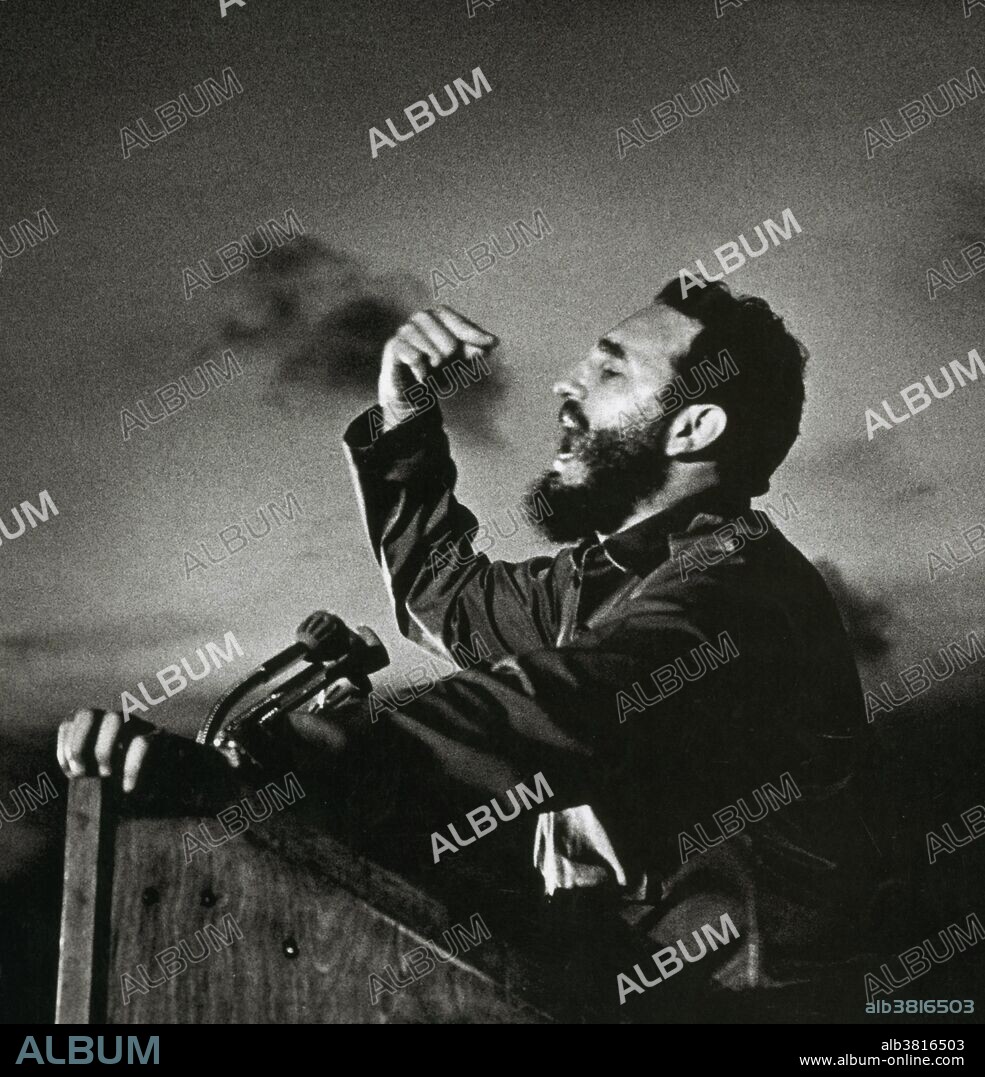alb3816503
Fidel Castro, Cuban Revolutionary

|
Ajouter à une autre Lightbox |
|
Ajouter à une autre Lightbox |



Avez-vous déjà un compte? S'identifier
Vous n'avez pas de compte ? S'inscrire
Acheter cette image.
Sélectionnez l'usage:

Titre:
Fidel Castro, Cuban Revolutionary
Légende:
Voir la traduction automatique
Fidel Alejandro Castro Ruz (born August 13, 1926) is a Cuban politician and revolutionary who served as Prime Minister of the Republic of Cuba from 1959 to 1976 and then President from 1976 to 2008. Under his administration Cuba became a one-party socialist state; industry and business were nationalized, and state socialist reforms were implemented throughout society. Castro took a key role in the Cuban Revolution by leading the Movement in a guerrilla war against Batista's forces from the Sierra Maestra. After Batista's overthrow in 1959, Castro assumed military and political power. Following the Soviet Union's dissolution in 1991, Castro led Cuba into its "Special Period" and embraced environmentalist and anti-globalization ideas. In 2006 he transferred his responsibilities to Vice-President Raúl Castro, who formally assumed the presidency in 2008. Castro is a controversial and divisive world figure. He is decorated with various international awards, and his supporters laud him as a champion of socialism, anti-imperialism, and humanitarianism, whose revolutionary regime secured Cuba's independence from American imperialism. Conversely, critics view him as a totalitarian dictator whose administration oversaw multiple human-rights abuses, an exodus of more than one million Cubans, and the impoverishment of the country's economy. No photographer credited, undated.
Crédit:
Album / Science Source / New York Public Library
Autorisations:
Modèle: Non - Propriété: Non
Questions sur les droits?
Questions sur les droits?
Taille de l'image:
3450 x 3588 px | 35.4 MB
Taille d'impression:
29.2 x 30.4 cm | 11.5 x 12.0 in (300 dpi)
Mots clés:
CÉLÈBRE • CELEBRITE • COMMUNISME • COMMUSIME • DICTATEUR • FIDEL CASTRO • HOMME • NATIONALISTE • PERSONNAGES • PERSONNALITÉS • PERSONNE • PREMIER MINISTRE • XXE SIECLE
 Pinterest
Pinterest Twitter
Twitter Facebook
Facebook Copier le lien
Copier le lien Email
Email
